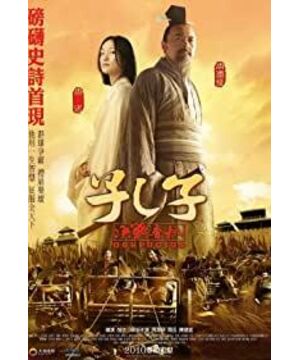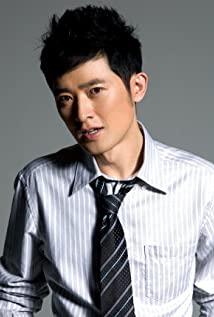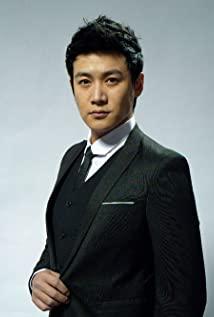Director Hu Mei said, "It takes courage to film Confucius." In our case, because there is a strange tradition, many people think that when you comment on a biographical film, you are actually commenting on the character itself, so it takes courage to comment on "Confucius". Fortunately, the film "Confucius" did not dig such a deep hole for us, because who is Confucius, I am not someone I can comment on. The film "Confucius", because it leaves the audience with too many possibilities for interpretation, has nothing to comment on. "Give me a word!" This line, which appeared in the main film, was Confucius's advocacy of prohibiting the sacrifice of living people. This sentence is that Confucius was running on Gongshan, so although the audience laughed when they heard it, it was okay. It's kind of humorous. In the trailer, this sentence is followed by Nanzi's words, which sounds very thunderous. For the film "Confucius", because I am a serious conspiracy theory patient, I think "Give me a word" is actually the theme of the film. Strange as it may sound, under the almighty conspiracy theory, everything can be explained. As a kind of "conspiracy theory", the following words are actually for Bo Jun's smile, don't take it seriously. The director and screenwriter of this film have said that to understand "Confucius", one must first read "The Analects of Confucius", but in my opinion, if you want to understand the film "Confucius", you don't need to read "The Analects of Confucius", you can understand it "News Network" and Xinhua News Agency will do the same. As a movie, the main scenes of "Confucius" are all about "falling into the three capitals", and the latter Confucius travels around the world, in fact, it can only be regarded as a subsidiary scene of buy one get one free. Considering the TV series of emperors and generals shot by director Hu Mei before, the scene of "Falling to the Three Capitals" is really hard to imagine. Speaking of the movie itself, although "Confucius" is very exaggerated and luxurious on a single screen, it is actually a movie that lacks visual sense, so that the movie as a whole feels dull. To put it bluntly, it just doesn't look like a movie. And I think this is because there are problems with the language of the shots and the structure of the story. There are good sentences and no good chapters. Although the individual scenes are very beautiful, when they are put together, the film can only use the story structure from the perspective of " Scattered" to describe it, coupled with the lack of expressiveness of the picture, directly leads to the whole movie looking dull and lacking in visual sense. A good story structure requires a stable world view and values to form. For the film "Confucius", because of the sensitivity of its subject matter, this "value" is precisely out of the screenwriter and director's control. Therefore, the narrative focus of the whole story has been erratic, and it is impossible to form a unified Lead the core clues of the entire film's story. In the first half of the clear appeal, because of the mainline support of "Falling Three Capitals", although there are many indoor dialogue scenes, the overall story still looks very compact. Although many scenes are still debatable in my opinion, it is only a matter of opinion, and there is no right or wrong. In the second half, because of the lack of a strong and clear story line, Confucius led his disciples to travel around the world, and it became a story of "intellectual donkey friends" making soy sauce along the way. In addition, one of the reasons why "Confucius" is a little dull may also be that the cultural barriers it artificially set are too high. As the saying goes, "explain the profound in the simple", but "Confucius" often "goes too deep" in the dialogue and background introduction, but "goes too shallow" in the relationship between the characters and the structure of the story. In terms of story details such as a large number of dialogues, names of people, and place names, this movie actually sets up cultural barriers for the audience. For most, even most movie audiences, the story backgrounds of San Huan, Gongsun Yan, etc. are lacking because of the lack of Corresponding background knowledge (although this reality is lamentable but true), directly leads to difficulties in understanding the film. This is what I mean by "going too deep". For a movie with such a theme, I don't think it's a shortcoming, because if this is avoided, what else would you do with Confucius? However, the film is "too shallow" in terms of story, which directly highlights the problem of "too deep". The audience can't understand your characters and background, and they are impatient to read your story, so they will naturally feel dull on the story level. It can be said that "Confucius" is only half a good show, but this does not mean that "Confucius" is not worth watching. For such a subject, it is precisely necessary for everyone to watch it, in order to get more perspectives on the audience's interpretation, to map the current mainstream cultural direction, and to let everyone think about the inheritance of traditional Chinese culture. Two last words. In the scene of Nanzi being assassinated, the editing idea of the film is very strange. The flashback of Nanzi Zhongjian and Confucius meeting Nanzi flashed back a parallel editing, in line with Confucius' prediction to the students (Wei country will be in chaos), this kind of scene The ambiguity of the language makes it easy for some viewers to misunderstand that the assassination of Nanzi is related to Confucius, or even planned by Confucius. This weakness of the narrative ability of the picture is reflected in many important scenes in the film. When Confucius learned about Zilu's death in battle, although there were flashbacks, he still had to rely entirely on narration to supplement the information. Those flashbacks didn't actually play a narrative role. In fact, in terms of the amount of information alone, a few flashbacks are enough to clarify the information of Zilu's death in battle (for For a comparative reference, "Flying House" opens with a silent fragment of the life story of the old man Carl and his wife. There is no dialogue at all, but the story and emotions are clearly conveyed). Baidu Encyclopedia: In the 22nd year of King Zhou Jingwang (498 BC), Lu Jun forcibly demolished the "Three Huan" private towns Qiu (now Dongping East, Shandong) and Fei (now Fei County, Shandong) Northwest) and Cheng (now northeast of Ningyang, Shandong). After the mid-Spring and Autumn Period, the Lu regime continued to move downward, and the clansmen of the Shusun, Jisun, and Mengsun clans, known as the "Three Huan", became stronger and stronger. rebellion. In order to prevent the vassals from rebelling in the private towns of the "Three Huan", this summer, Confucius, the Lu Secretary, suggested that Duke Ding demolish the "Three Huan" private towns Qiu, Fei and Cheng. At that time, the family officials of the "Three Huan" had a major shock, so this discussion also received a response from the "Three Huan". The Shusun clan first led the army to demolish Qiu Yi. The Ji Sun clan wanted to destroy Feiyi. Fei Zaigong Shan Buju and his uncle Sun Yi led a rebellion and attacked Qufu, the capital of Lu (now east of Qufu, Shandong). Duke Ding of Lu fled and hid in Jisun's palace. Lu Sikou Confucius ordered the doctors Shen Guxu and Le Qi to lead the army to counter the rebels. Fees retreat. The Lu army chased after the victory, and then defeated it at Gumie (now east of Sishui, Shandong). Gongshan Buju and Shusun Yi fled to the state of Qi, and Feiyi was destroyed. The Mengsun clan wanted to destroy Chengyi, but Chengzai Gong Lian's father tried to discourage Chengyi on the grounds that Chengyi was an important border defense town and a clan barrier. The Mengsun clan listened to his advice and did not destroy Chengyi. In December of the same year, Duke Ding of Lu led his army to encircle it, but the attack failed. After the mid-Spring and Autumn Period, the Lu regime continued to move downward, and the clansmen of the Shusun, Jisun, and Mengsun clans, known as the "Three Huan", became stronger and stronger. rebellion. In order to prevent the vassals from rebelling in the private towns of the "Three Huan", this summer, Confucius, the Lu Secretary, suggested that Duke Ding demolish the "Three Huan" private towns Qiu, Fei and Cheng. At that time, the family officials of the "Three Huan" had a major shock, so this discussion also received a response from the "Three Huan". The Shusun clan first led the army to demolish Qiu Yi. The Ji Sun clan wanted to destroy Feiyi. Fei Zaigong Shan Buju and his uncle Sun Yi led a rebellion and attacked Qufu, the capital of Lu (now east of Qufu, Shandong). Duke Ding of Lu fled and hid in Jisun's palace. Lu Sikou Confucius ordered the doctors Shen Guxu and Le Qi to lead the army to counter the rebels. Fees retreat. The Lu army chased after the victory, and then defeated it at Gumie (now east of Sishui, Shandong). Gongshan Buju and Shusun Yi fled to the state of Qi, and Feiyi was destroyed. The Mengsun clan wanted to destroy Chengyi, but Chengzai Gong Lian's father tried to discourage Chengyi on the grounds that Chengyi was an important border defense town and a clan barrier. The Mengsun clan listened to his advice and did not destroy Chengyi. In December of the same year, Duke Ding of Lu led his army to encircle it, but the attack failed. After the mid-Spring and Autumn Period, the Lu regime continued to move downward, and the clansmen of the Shusun, Jisun, and Mengsun clans, known as the "Three Huan", became stronger and stronger. rebellion. In order to prevent the vassals from rebelling in the private towns of the "Three Huan", this summer, Confucius, the Lu Secretary, suggested that Duke Ding demolish the "Three Huan" private towns Qiu, Fei and Cheng. At that time, the family officials of the "Three Huan" had a major shock, so this discussion also received a response from the "Three Huan". The Shusun clan first led the army to demolish Qiu Yi. The Ji Sun clan wanted to destroy Feiyi. Fei Zaigong Shan Buju and his uncle Sun Yi led a rebellion and attacked Qufu, the capital of Lu (now east of Qufu, Shandong). Duke Ding of Lu fled and hid in Jisun's palace. Lu Sikou Confucius ordered the doctors Shen Guxu and Le Qi to lead the army to counter the rebels. Fees retreat. The Lu army chased after the victory, and then defeated it at Gumie (now east of Sishui, Shandong). Gongshan Buju and Shusun Yi fled to the state of Qi, and Feiyi was destroyed. The Mengsun clan wanted to destroy Chengyi, but Chengzai Gong Lian's father tried to discourage Chengyi on the grounds that Chengyi was an important border defense town and a clan barrier. The Mengsun clan listened to his advice and did not destroy Chengyi. In December of the same year, Duke Ding of Lu led his army to encircle it, but the attack failed.
View more about Confucius reviews











